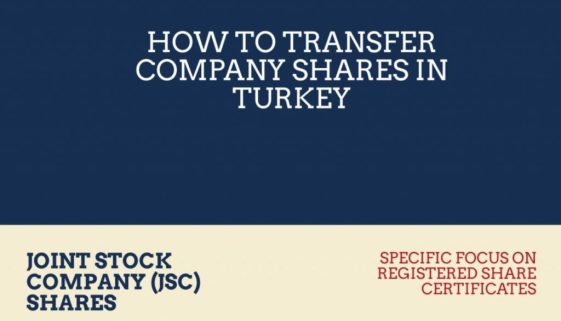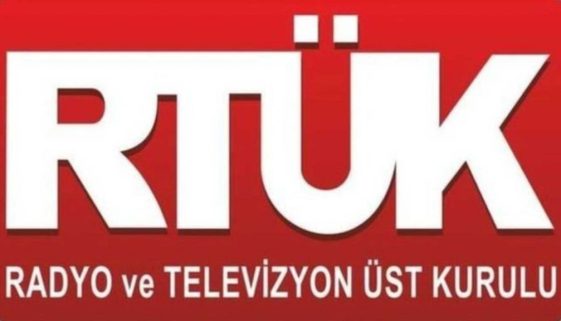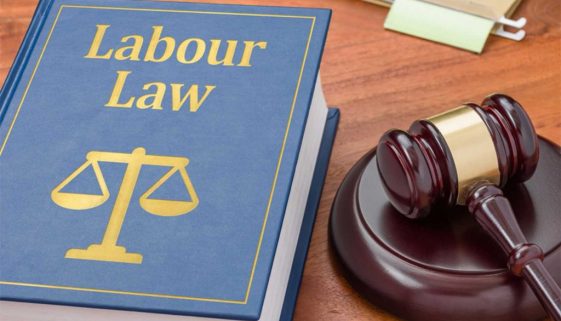SHARE TRANSFERS IN TURKEY – PART III RESTRICTIONS ON SHARE TRANSFERS
We reviewed the general rules and procedures of share transfers in Turkey relating to share transfers in joint stock companies..

We reviewed the general rules and procedures of share transfers in Turkey relating to share transfers in joint stock companies..

Liabilities of Board members are regulated under Article 553 of TCC. Accordingly, board members may only be responsible of the damages caused to the company to it’s shareholders and to the creditors of the company (related third parties) in case they fail to fulfill their obligations arising from the law and articles of association at their own fault. Two conditions mentioned above should co-exist to hold the Board Members liable for their acts.

As part of our share transfer and corporate law series, we already analyzed the rules and procedures of share transfers in Joint Stock Companies (Part-I) and the role of share ledgers in such transactions (Part-II). Due to the complex nature of these transactions, we also created an infographic in order to make the information more accessible and easily understandable. This infographic provides a visual summary of share transfers in Turkey and the contents examined in […]

THE ROLE OF COMPANY SHARE LEDGERS IN SHARE TRANSFERS IN TURKEY Av. Ali Yurtsever L.L.M a) The Problem of Attaining Shareholder Status in a JSC Owning shares in a JSC and claiming the shareholder title before the company are two different things. This may be kind of confusing, as in order to become a shareholder of a specific company, one must first acquire shares of that company. Without shares, there can be no shareholder status. However, […]

SHARE TRANSFERS IN TURKEY – PART I Av. Ali Yurtsever L.L.M Share transfer Procedures The TCC sets forth that the principle of transferability shall be applicable to shares of JSCs. This means that as a rule, the shares of JSCs can be freely transferred by shareholders of the relevant company to third parties without any prior permission and/or approval of any other person and/or entity. There are, of course, certain exceptions to this rule where […]

Copyright protection in Turkey is regulated under the Intellectual and Artistic Works Law No. 5846 (hereinafter will be referred as “the Law”). Copyright arises automatically on creation of work, whereas “work” is defined as any intellectual or artistic product bearing the characteristic of its author, which are works that fall under the categories below

II. COMPANY TYPES Although the Law does allow for the incorporation of “personal companies” (where company owners are fully liable with their personal assets for any and all company debts), capital companies are the most common form of business entities in Turkey utilized by both local and foreign investors. Investors may either choose to incorporate a new company or participate into an already existing capital company (either via merger or acquisition). It should be noted […]

RTUK is Now Entitled To Supervise Online Media Service Providers Emir Aksoy LL.M, LL.M. IP Licensing and Authorization Such media service providers will have to apply for a license or authorization within a month starting from the effective date of this Regulation(01.08.2018). Depending on the type of the media service(INTERNET RADIO, INTERNET TV, ON-DEMAND STREAMING BROADCAST) a license or authorization shall be granted to the applicants fulfilling the requirements of this Regulation. The given license […]

Emir Aksoy LL.M, LL.M. IP First stage is the notice and takedown for copyright infringements , which requires the content provider to takedown the infringing content from the website within three days following the notice to be made by the right holders. Second stage starts if the content provider does not take down the infringing content in the given time. In this case, a request shall be made to the public prosecutor requiring the service provider to cease the […]

II. CONDITIONS FOR EMPLOYMENT SECURITY Article 18 of the law clearly defines the conditions of employment security. Accordingly, any worker/employee who has been working for at least six months in a workplace that employs at least 30 employees shall benefit from the employment security rules. Although the conditions set forth for the employment security system seem simple, determining the total employee count in a specific workplace can be quite complex in certain situations. First and […]